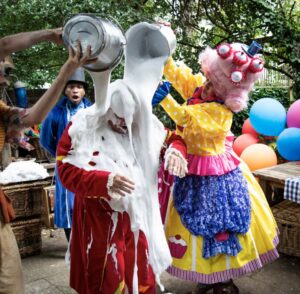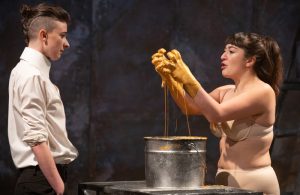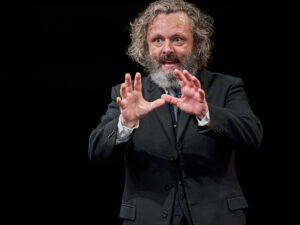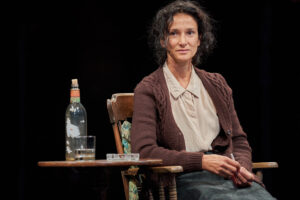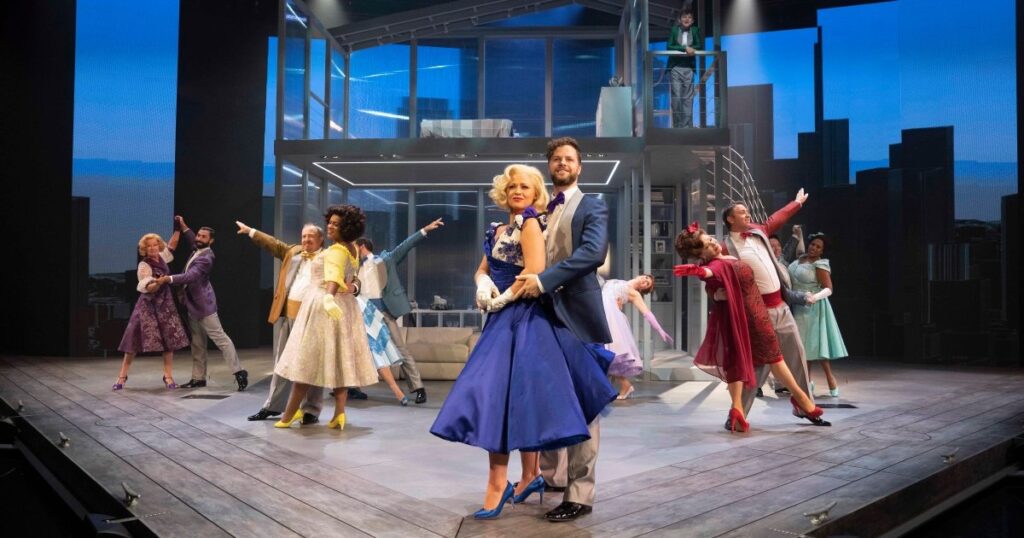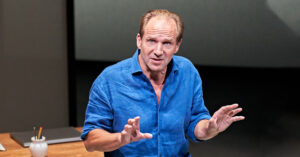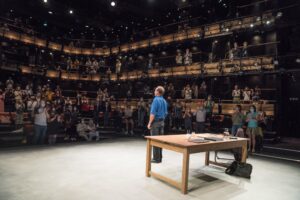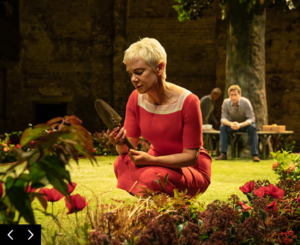The Top Ten Bestselling Stage Musicals as featured on Box Office Radio
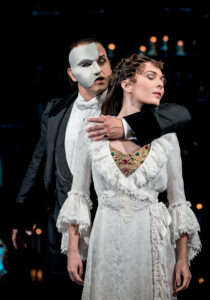
This top ten doesn’t go by the money the productions have taken at the box office or length of run or all the different productions added together. This list is based on the number of tickets sold worldwide by the same production. TIt’s not completely reliable because the figures tend to be supplied by the producer. All the entries date from the 1980s onwards because very long runs are a relatively modern phenomenon, starting really with the megamusicals of Lloyd Webber and Cameron mackintosh. To give you an idea, one of the greatest musicals of all time, Oklahoma! which back in the 1940s held the title of the longest-running Broadway musical had a mere 2212 performances. By contrast, the first megamusical Cats had 8949.
10= Starlight Express (25 million tickets worldwide)
Andrew Lloyd Webber’s Starlight Express would have been much higher but for its relatively short run on Broadway. On the other hand, it’s been greatly helped by its run at the Starlight Express Theatre in Bochum Germany where it’s been seen by 17 million people. A romance featuring railway trains may seem a strange subject for a musical but behind that and the roller skating spectacular, there are some great songs.
10= Jersey Boys (25 million tickets worldwide)
Jersey Boys is the second most successful jukebox musical ever. It’s based on the story of Franki Valli and the Four Seasons and it’s a cut above the typical musical biography with each of the four band members telling a section of their story from their point of view.
9 Chicago – 1996 revival (31 million tickets worldwide)
Chicago made little impact when it premiered in 1975 but when it was revived in 1996 it became a huge hit. It is not only the longest-running revival in Broadway history but its longest-running American musical. (Incidentally, there are only 4 American musicals in this top 11.) The revival while still using the basic Bob Fosse choreography stripped down the design- and the women. So while the original female performers wore showgirl and flapper outfits, now they were in what was essentially sexy underwear. And it was marketed with striking black and white images that emphasised its erotic qualities. Souvenir programmes were snapped up by theatregoers who clearly appreciated the quality of the photography.
7= Miss Saigon (35 million tickets worldwide)
Miss Saigon is the first of two entries from writers Alain Boublil and Claud-Michel Schoenberg. No prizes for guessing what the other is. Based on Puccini’s Madam Butterfly, Miss Saigon is the story of a mother’s love and sacrifice.
7= Disney’s Beauty And The Beast (35 million tickets worldwide)
Beauty And The Beast marked Disney’s first foray into live musicals, apart that is from the mini shows they would put on in their theme parks. In fact the director Robert Jess Roth came from the theme parks but he stepped up to Broadway as if born to it and his production was both faithful to film and a proper stage musical. Linda Woolverton who had been the first woman to write a Disney animated feature screenplay, adapted and expanded her script for the stage show. Tim Rice added lyrics to six new songs composed by Alan Menken who had written the songs for the original film with the late Howard Ashman. Then the stage musical became a movie.
6 Wicked (55 million tickets sold worldwide)
Wicked by Stephen Schwartz is based on a book called Wicked: The Life and Times of the Wicked Witch of the West, which was both a prequel and a sequel to The Wizard Of Oz. The main character is Elphaba and, if you haven’t twigged, L F B are the initials of L Frank Baum, the author of The Wizard Of Oz. The story of a young woman who rebels against the system and is labelled a wicked witch was immediately popular with the teenage girl market but there was a much wider appeal to anyone who identifies with an outsider fighting for truth and defending liberty (and who doesn’t?).
Before I move on to my top 5 best selling stage musicals, I’d just like to mention a couple of other contenders who didn’t make the list.
5 Mamma Mia! (65 million tickets worldwide)
Mamma Mia! is the best selling jukebox musical of all time. Unlike Jersey boys, it’s not a biography but the kind of jukebox musical that takes a songbook and turns it into a story. In this case, it no doubt helped that the songbook belonged to ABBA but much of the credit goes to writer Catherine Johnson. She made the songs seem like they’d been written for this fun tale of a girl who is getting married and wants to meet the three men who could be her father.
4 Les Miserables (70 million tickets worldwide)
It’s back to Cameron Mackintosh and Boublil and Schoenberg with help from English translator Herbert Kretzmer for our number 4 best selling stage musical Les Miserables. This story of atonement is the West End’s longest running musical ever with over 14,000 performances.
Les Miserables is due to reopen at the Sondheim Theatre London on 29 May 2021. Book here
3 Cats (73 million tickets sold worldwide)
Andrew Lloyd Webber’s Cats is the musical that led the British invasion of Broadway in the 80s. It began as a song cycle before Cameron Macintosh took it by the scruff of the neck and helped transform it into a fully fledged musical. It’s the ultimate tourist attraction, offering spectacle and memorable songs without much of a plot. That’s not to put it down, it did win both Tony and Olivier Awards for Best musical. And the spectacle was impressive. It was not only the first megamusical, it began the phenomenon of identical productions playing throughout the world. In Germany, it had over 6000 performances and in Japan over 10,000.
It’s interesting that back in the 70s and 80s the Arts Council of Great Britain undertook a ‘housing the arts’ programme that involved large sums of money being spent on building or refurbishing large scale theatres to enable the country to see the very best opera and ballet. But it wasn’t long before commercial theatre companies saw the opportunity to recreate their magnificent London productions before very large regional audiences.
2 Disney’s The Lion King (100 million tickets sold worldwide)
The Lion King is the only non-British musical in the top 5. Disney had seen the success of the megamusicals and decided to pull out all the stops when they mounted their second stage musical. The Lion King by Elton John and Tim Rice was already Disney’s most successful animated feature. The company made the bold move of employing a director whose previous experience was mainly in shows involving puppetry. Julie Taymor put on what amounted to a huge puppet show but the gamble paid off. Taymor won Tony Awards for both her direction and her costume design. The show is still running both on Broadway and in the West End and it is the number one musical for worldwide box office income- an extraordinary eight and a quarter billion dollars.
1 The Phantom Of The Opera (130 million tickets worldwide)
What has made Andrew Lloyd Webber’s The Phantom Of The Opera so popular? For a start, whereas his earlier shows used songs which are often pastiches of various musical genres, in Phantom Lloyd Webber went into full operatic mode. It’s sung-through so it is the music that really tells this melodramatic story. You feel the disfigured opera lover’s obsession with Christine, and the romantic young love between Christine and Raoul. And all the while, there is a real sense of danger, with Lloyd Webber using that dramatic Phantom motif of the descending notes Dah – da da da da dah at key moments to send a shiver down your spine, very much like the dum-dum-dum- dum signalling the arrival of Jaws. Lloyd Webber has never done better, nor indeed has anyone else. Of course, we can’t rule out the chandelier as an element of its success. It occupies centre stage as the show opens and famously crashes down at the end of the first act. It is probably the all-time greatest coup-de-theatre.
Click to view Paul’s YouTube playlist of performances of songs from the top ten bestselling musicals
Also Rans
Oh Calcutta! clocked up 5959 performances on Broadway which puts it in at number 8 in the top ten longest running Broadway musicals. It’s interesting that this British show which was staged to celebrate the end of theatre censorship in Britain should have proved so popular with the Americans. It was described as an erotic revue and, as well as songs, featured sketches by among others Samuel Beckett and John Lennon, plus a lot of nudity.
Blood Brothers didn’t make the worldwide top ten of best selling musicals but it did notch up over 10,000 performances in the West End, making it the third longest-running musical in West End history. Blood Brothers had had one run in the West End before Bill Kenwright relaunched it, after which Willy Russell’s story of twins separated at birth ran for 24 years. Which is why Blood Brothers is also the longest-running West End revival.




